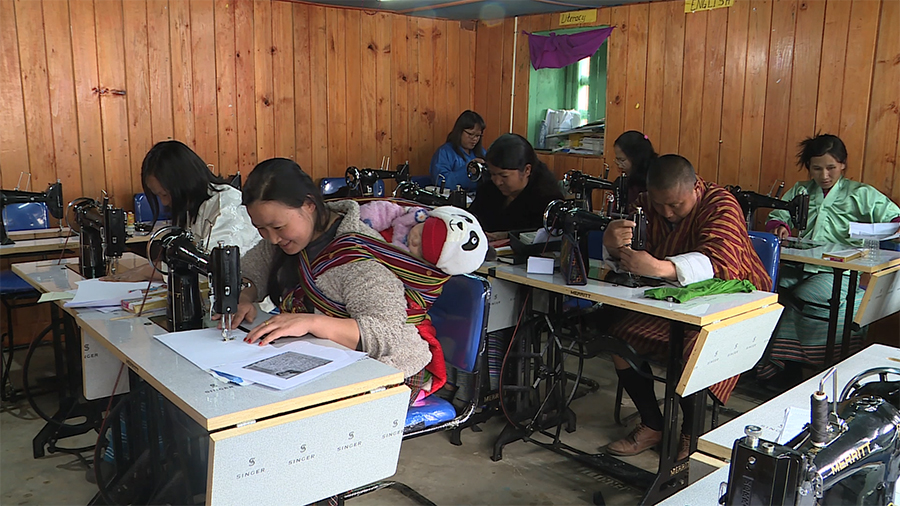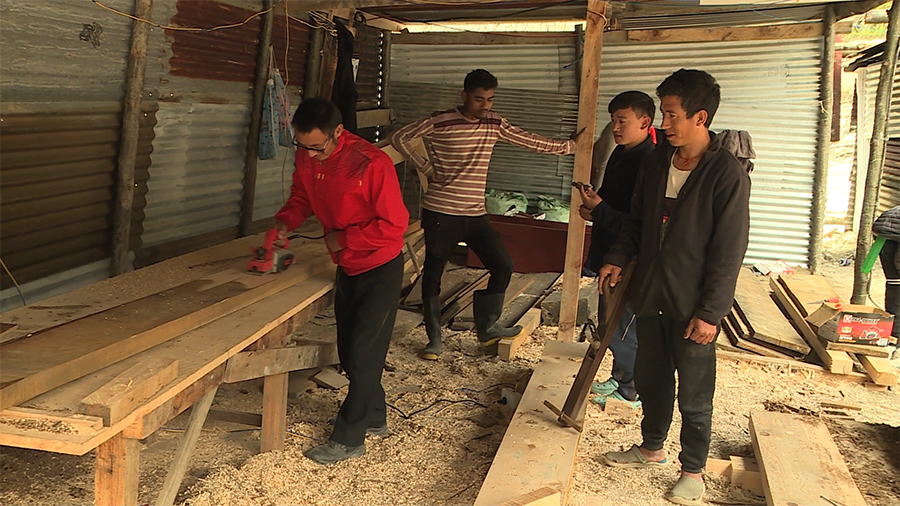
Equipping oneself with various life skills is necessary to navigate this fast-paced and ever-changing world. In an effort to help the support staff acquire life skills that will enhance their livelihoods, the Gasa District Administration has begun the ‘Skills for Life’ training from last week following directives from the Royal Civil Service Commission.
The skills training is divided into two cohorts. Currently, the first ongoing cohort includes training in carpentry, electrical and tailoring. From the 51 support staff in the district, 28 interested employees signed up for these three fields of training.
For tailoring, 12 participants are undergoing a month-long basic training at the Gasa Primary school where they are learning how to stitch the national attire.
“I have always wanted to learn tailoring but we couldn’t get such opportunities in Gasa. Moreover, we couldn’t afford to go to Thimphu to attend such training. Now that His Majesty has gifted us with this opportunity, I am even more interested to learn and so I participated in this training,” said Tsheten Wangdi, Clarinetist.
“I was interested to participate and on top of that, we were told that it is His Majesty’s project. This training has been gifted by His Majesty to lower-income people like us so that’s why we came to learn,” said Wangmo, ward girl of Gasa hospital.
“Apart from just their salary, these upskilling programmes are important to help elevate their livelihood,” said Sonam Wangmo, Human Resource Officer of Gasa District Administration.
“They work from 9 in the morning till 5 in the evening but after that, they can also use these skills to work overtime and earn a living for their families and themselves,” said Chimi Lhaden, the tailoring trainer from the Ministry of Industry, Commerce and Employment.
 Alongside the Gasa Tshachhu restoration project, a group of seven staff are also engaged in learning carpentry from one of the skilled Indian labourers. Although they say communication with the trainer is challenging, they are determined to learn the art of carpentry.
Alongside the Gasa Tshachhu restoration project, a group of seven staff are also engaged in learning carpentry from one of the skilled Indian labourers. Although they say communication with the trainer is challenging, they are determined to learn the art of carpentry.
“I participated with the hope that this training will benefit me in the future. Right now, we earn a little from our jobs but after we retire and decide to go back to our villages, I hope to sustain myself through this knowledge,” said Gyeltshen, a gardener.
“Even if I don’t have a job, it is important to have a skill and if I have the skill of carpentry, I feel I won’t have to worry about earning a living,” said Sonam Tobgay, night guard of Gasa hospital.
For the staff in Laya and Lunana, Gasa District Administration is planning to conduct the training during summer and winter vacations this year.
For the second cohort, Gasa district is currently assessing the availability of resources to introduce skills training in baking and salon.
Kesang Wangmo, Gasa
Edited by Phub Gyem










